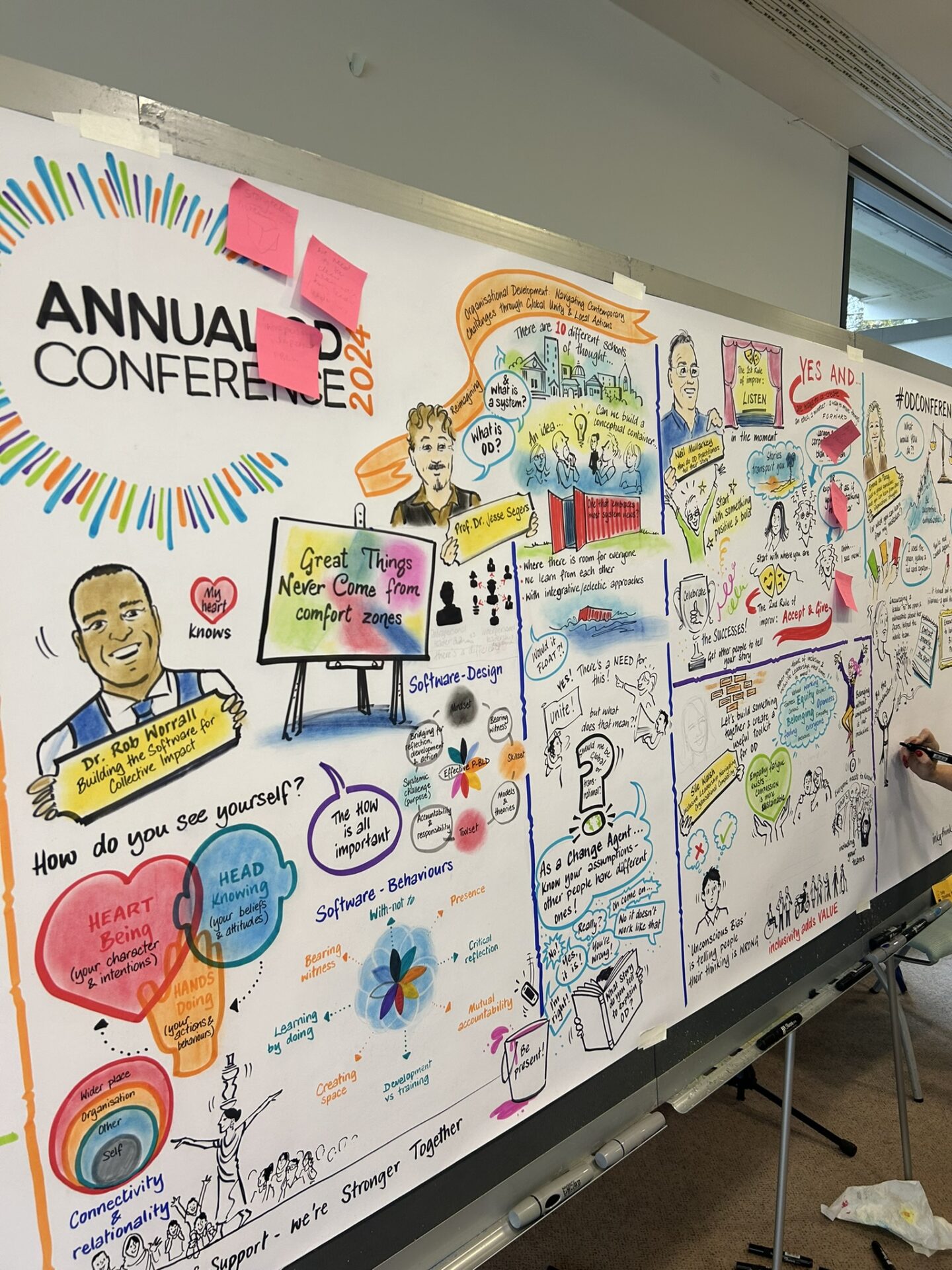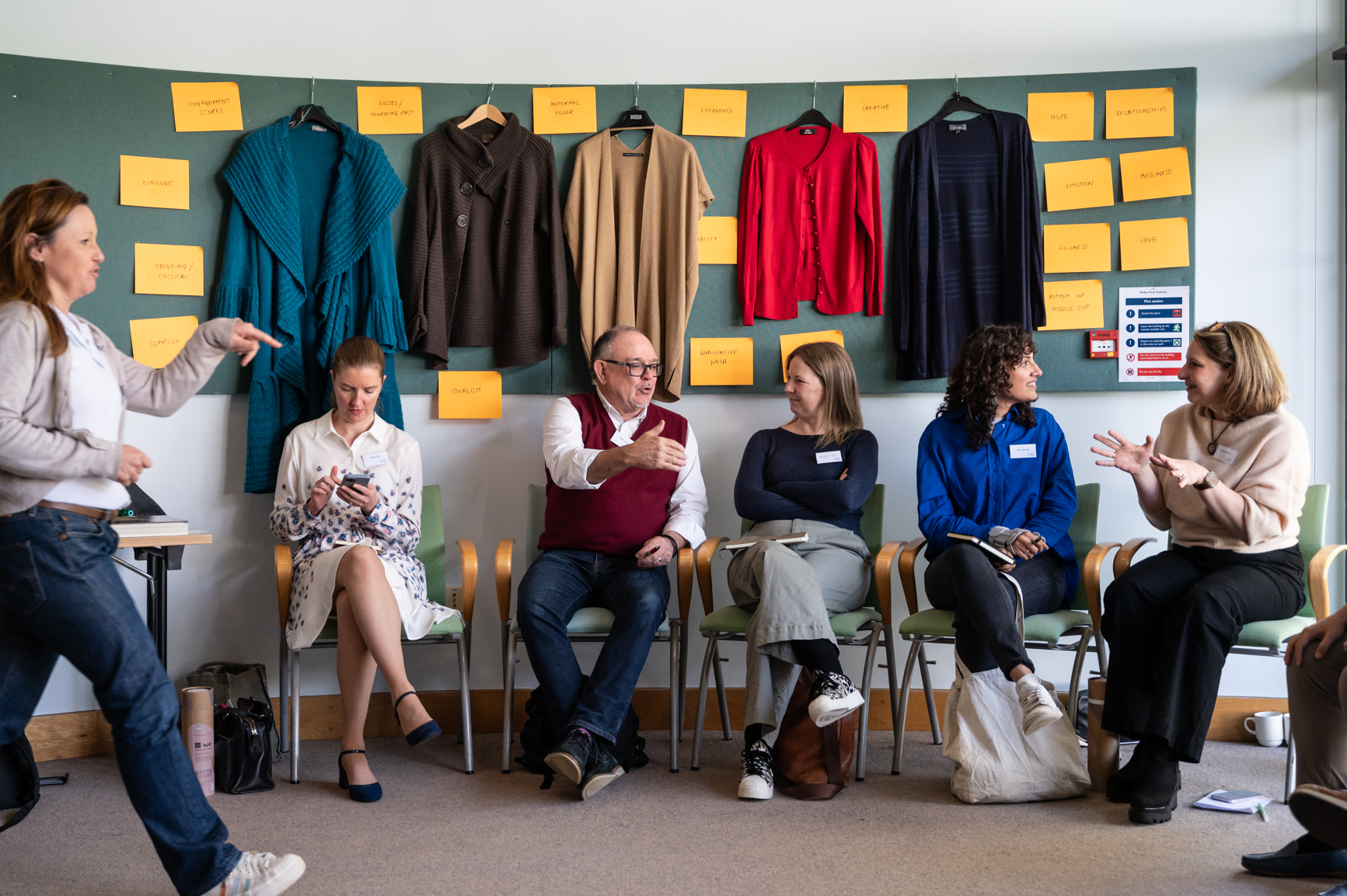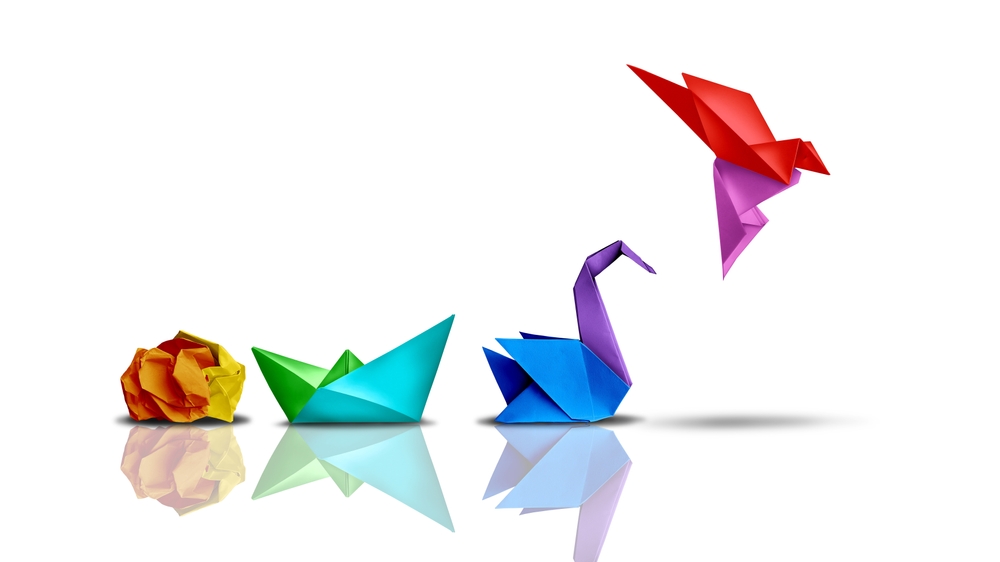Last week I had the great opportunity to attend this year’s Roffey Park Institute OD Conference and what followed were two days of incredible thought-provoking sessions, enriching conversations and plenty of academic rigour supported by real-world practice insights. Here are my reflections.
Informally the conference began on Wednesday evening for guests who had decided to arrive the night before. A short spell at the bar followed by a chance to network in the lounge meant that by Thursday morning, there was already an air of excitement in the building.
A brief introduction from Roffey Park CEO, Dr Arlene Egan, welcomed guests, some who had flown in from countries from all over the world – Bermuda, Hawaii and South Africa, for example – and the infectiously energetic and humorous Neil Mullarkey as, for consecutive years, conference MC. After agreeing with the crowd on a hashtag for the event, #ODconference, for the chance for people to connect with the conference who were not fortunate enough to attend the conference in person, Neil swiftly introduced the first keynote speaker.
Ku’ulani Keohokalole – Localizing Organisational Change in Cultural Values
Ku’ulani Keohokalole welcomed her introduction and as the crowd fell silent she introduced herself with an indigenous chant. Guests were in awe at the melodic beauty of the chant which perfectly set the tone for not just Ku’ulani’s speech, but the whole conference itself.
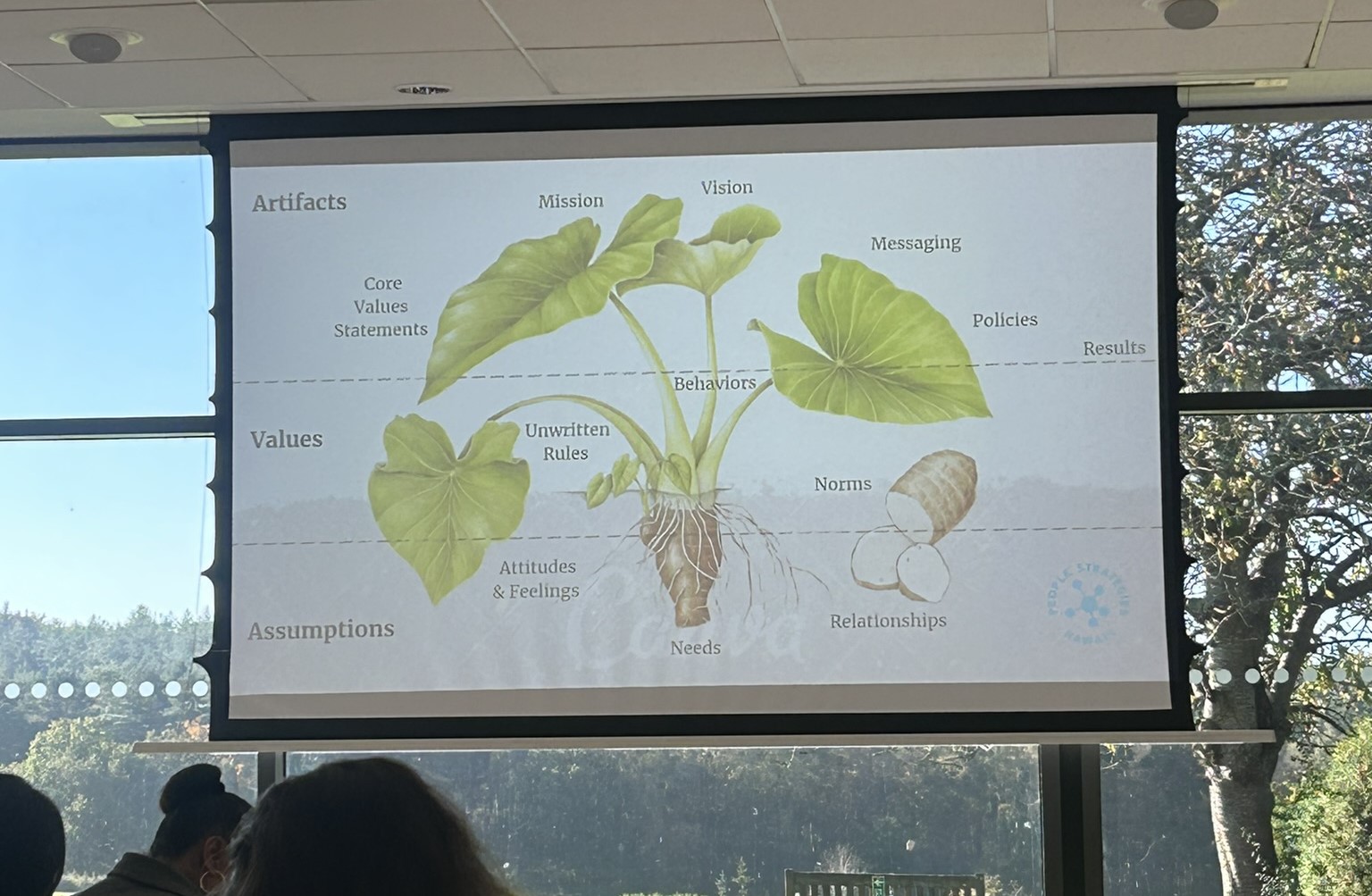
Ku’ulani’s speech was full of inspiring stories and cultural metaphors that allowed her perfectly to make the connection between how her cultural values impact her organisational thinking. Following the theme of cultural influence, Ku’ulani explained her and the people from Hawaii’s relationship with the Taro Root and how she has adopted that in her practice as a metaphor and diagram for healthy organisations.
Ku’ulani engaged with the audience throughout, frequently asking for their perspectives. Place informing practice was a common theme throughout the talk and so the question posed to the audience, ‘How might my physical place inform how I go about my practice?’ proved popular.
Ku’ulani’s empowering talk was underpinned by the understanding that finding the right moment to act is just as important as the intervention itself, that time is our friend and change moves at the speed of trust. She finished with her definition of OD, that it is planned change but with an intuitive sense added to it.
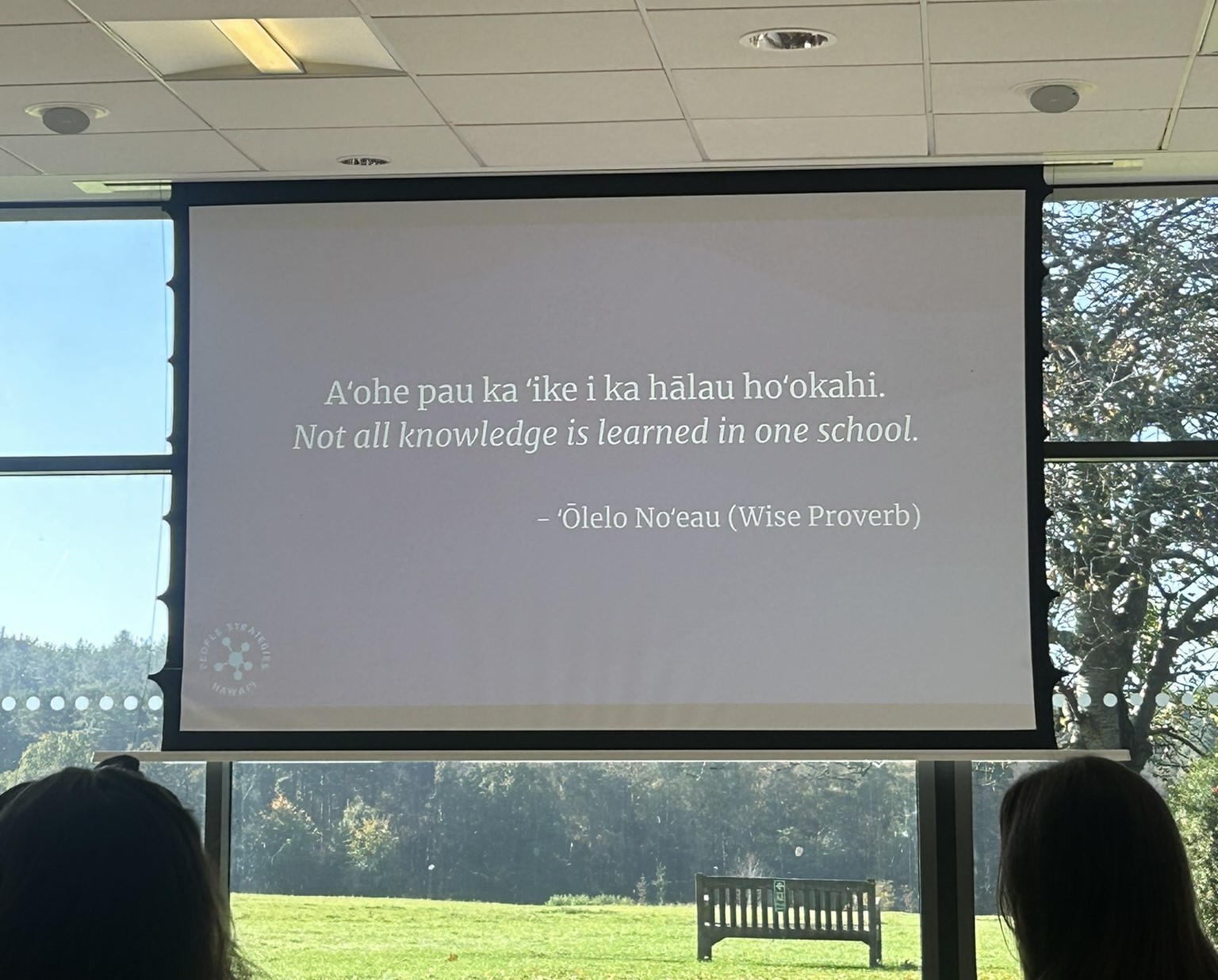
Workshops
Following a short break, guests were able to choose two workshops to attend. I chose to attend Simplifying Complexity for Team Growth with Paul West, and Evolving OD through the power of AI with Ciara Halloran and Andrew Whyatt-Sames.
Paul drew upon imagery to convey his message. All good stories have a villain, in this case assumptions, and heroes, clear shared principles and norms that can create alignment, clear decision making, faster progress and establish the culture of an organisation. Paul’s calming and assuring presence as facilitator allowed for really meaningful conversations between guests, who shared their experiences within their practices.
The latter, facilitated by Ciara and Andrew, took a slightly different approach. The workshop took more of an educational perspective with Andrew exampling the incredible things that AI can do throughout, when used correctly. Andrew’s nonchalant and comedic facilitation style vibrated around the room, with no better example than when he used a chat GBT voice-activating app on his phone, asking the bot to use the voice of a 17th-century nobleman.
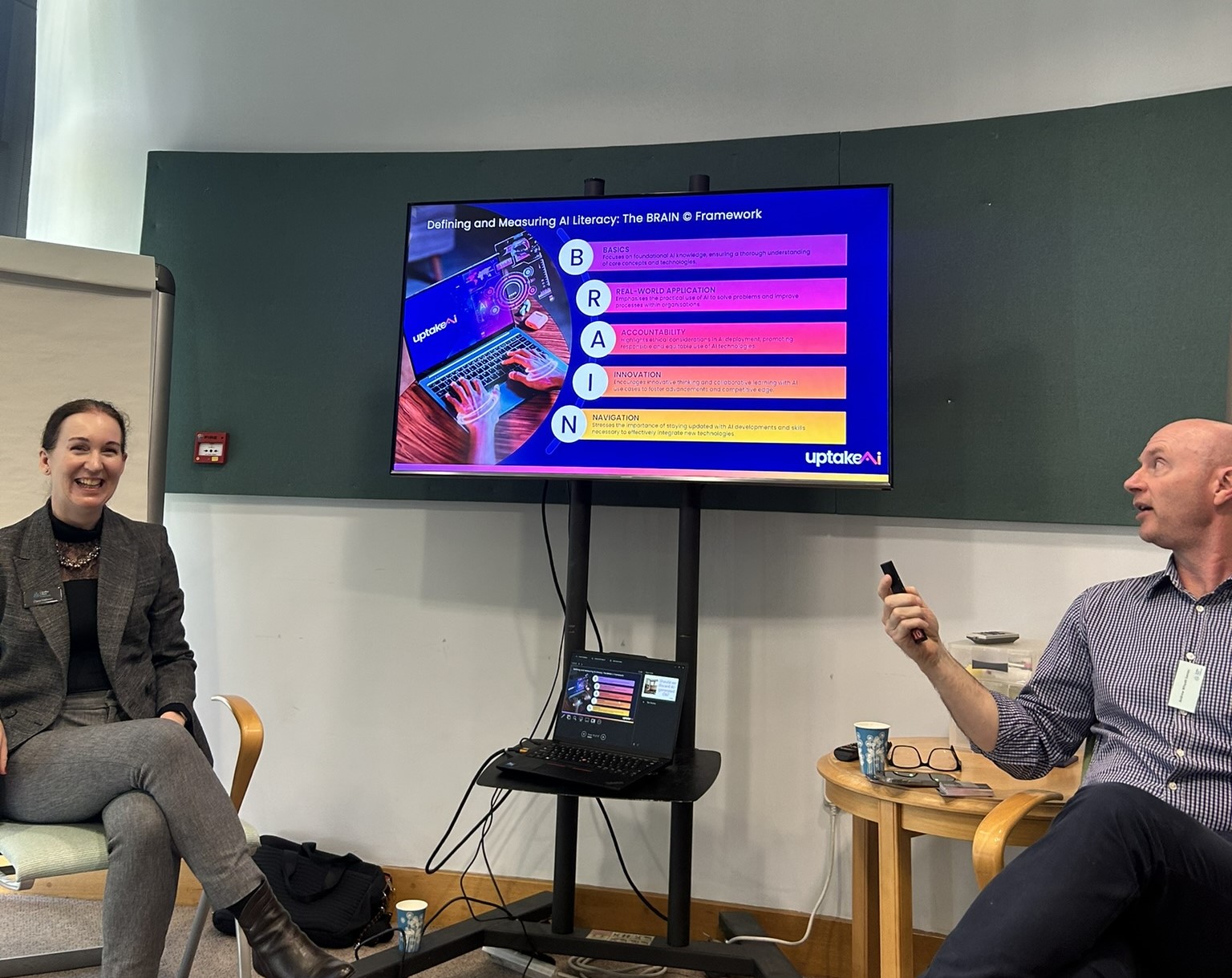
Dr Rob Worrall – Building the Software for Collective Impact
Thursday was a beautifully warm autumnal day, with many guests using the weather as an opportunity to wander the picturesque Roffey Park grounds during the lunch break. With their bellies full, lungs exercised and minds relaxed, the audience appeared ready for two more keynote speaker sessions in the afternoon. First up was the man behind the ground-breaking Place-Based Leadership Development (P-BLD) initiatives, Dr Rob Worrall.
Rob began his talk with a brilliant question, which song symbolises you as an OD practitioner? Little did the audience know, Rob had previously asked two guests to prepare an answer to this. The first guest chose ‘Don’t Stop Believing’ by Journey because, in the face of new challenges, it is important to not stop believing in yourself and your practice. The next guest followed, who chose a film instead of a song and opted for Todd Phillips’ 2019 ‘Joker’. They explained that they considered their approach and the groundwork for their job role in that sometimes people and systems do not work and that Joker depicts that well.
Rob went on to explain the background of P-BLD before drawing its relevance to OD. Like OD, the success of P-BLD depends largely on the role and effectiveness of the facilitator. This is where Rob explained his ‘Behaviours’ model which resonated well with the audience.
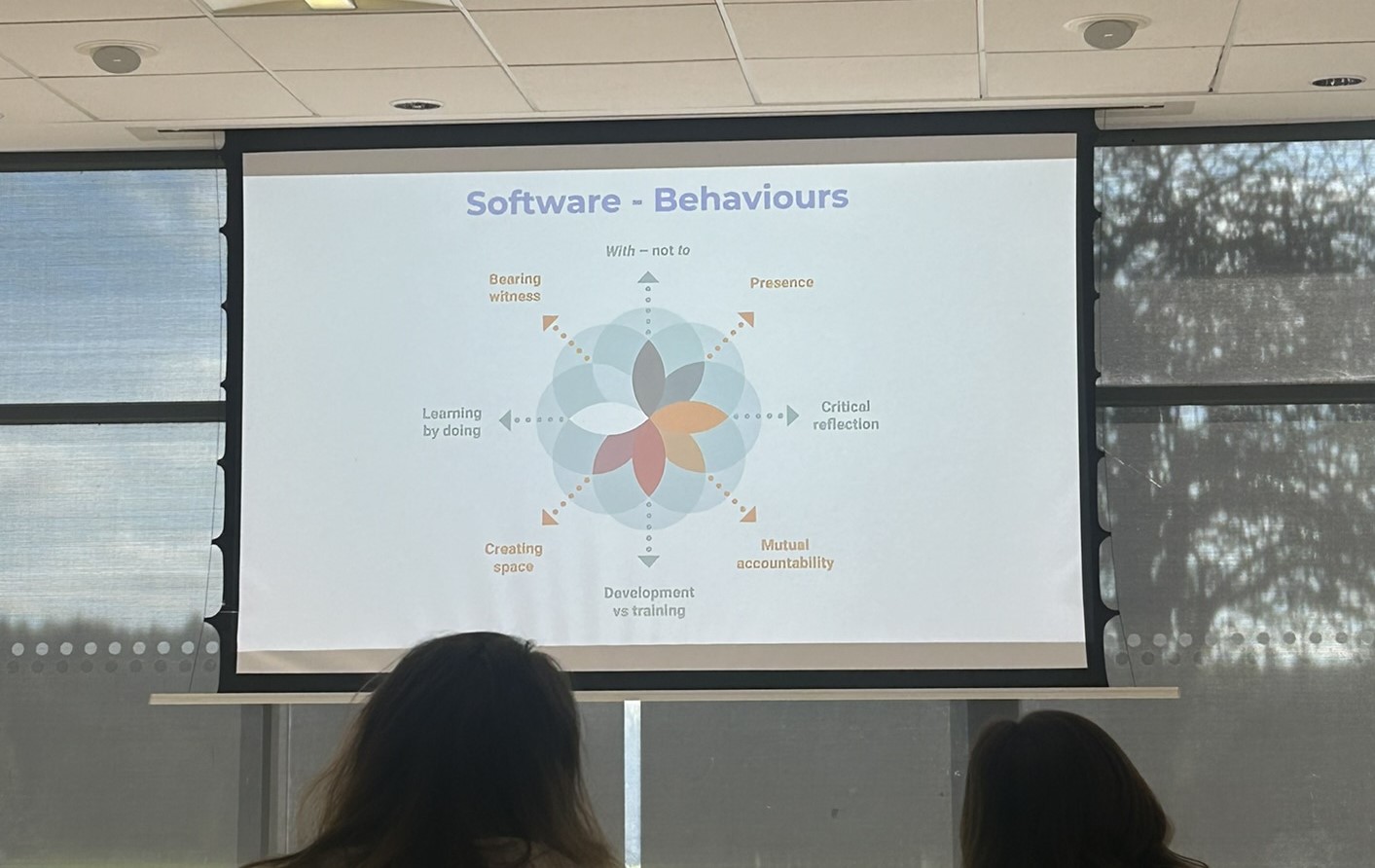
Rob’s talk was theory-based yet filled with practical evidence and was an excellent opportunity for the guests to pick up on techniques and initiatives that they can apply within their practice and contexts. Maintaining the impressive amount of creativity and mindfulness on show already, Rob finished with an original poem called Humanhood, a powerful piece that left the audience deep in thought and reflection.
Jesse Segers – Reimagining OD: navigating contemporary challenges through global unity & local action
Jesse Segers took to the stage to close out day one of the conference. Jesse joked that every time he attends an OD conference, people still always ask, ‘What is OD?’, which he went on to directly address at the end of the talk. Jesse then went on to clarify the different schools of thoughts and definitions of system theory before explaining how he uses Bartlett & Ghoshal’s model of international strategies to place where OD currently is.
After asserting that he believes OD to currently be in the multi-domestic field with multiple institutes coexisting yet not optimised and if OD does not act soon, it could face a number of issues. He went on to present several intricate graphs to suggest that it is possible to create a conceptual container that embraces most system views.
Jesse asked the audience, what do you think would help build a more global OD community, beyond personal needs? Answers from guests included, a recognised and accepted global body of accreditation and acceptance, ‘don’t boil the ocean’, getting the people together before the definitions and interventions, the connection of governing bodies and uniting by learning from one another rather than standardising practice.
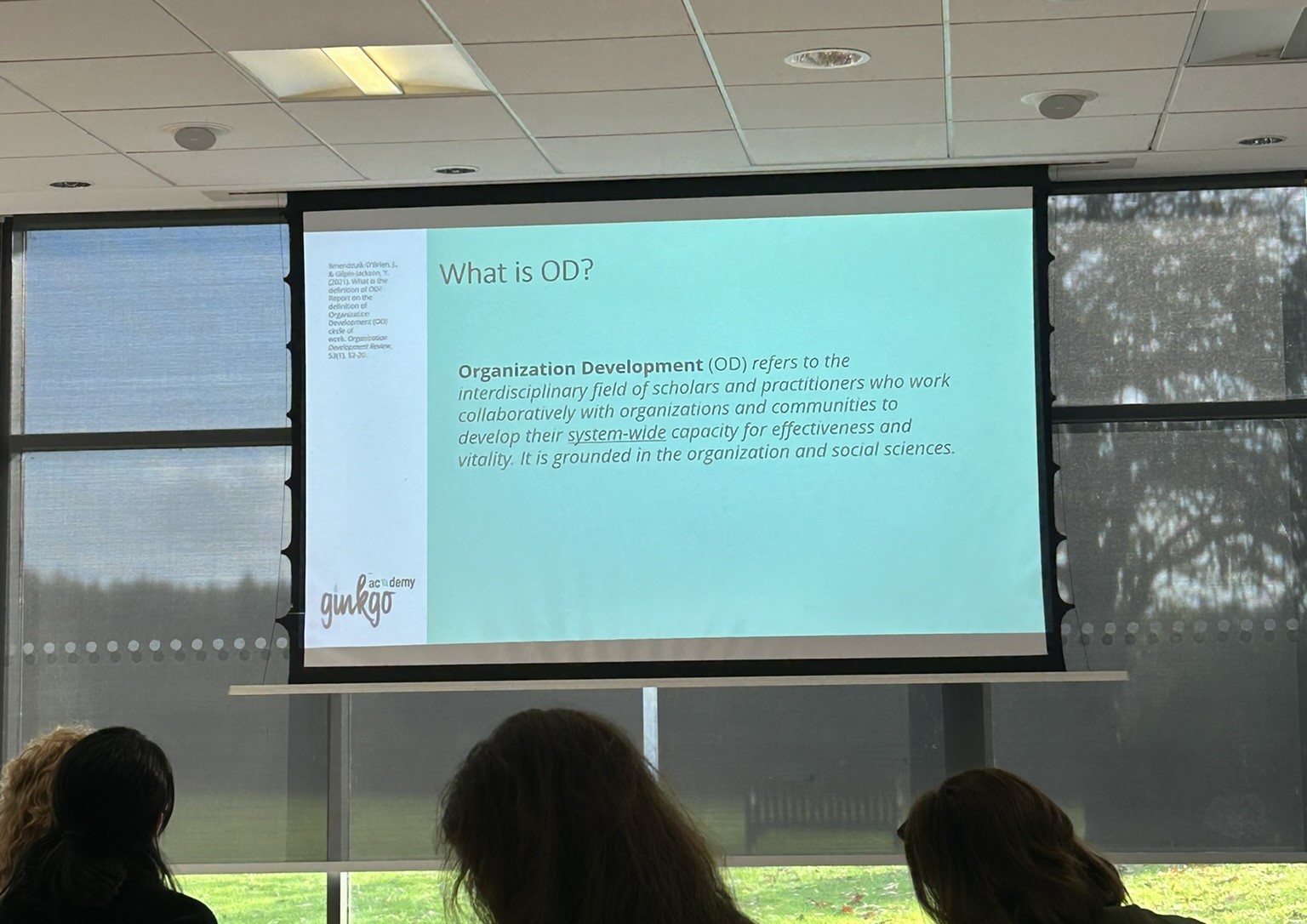
Jesse asked the audience, “What do you think would help build a more global OD community beyond personal needs?” Answers from guests included a recognised and accepted global body of accreditation and acceptance, ‘don’t boil the ocean’, getting the people together first before the definitions and interventions, the connection of governing bodies and uniting by learning from one another rather than standardising practice.
Throughout the day, guests had a number of breaks whereby networking and speaking to friends was popular, but this was amplified in the evening during dinner and time after in the bar and lounge areas. Ku’ulani’s soulful chant to Rob’s meaningful practice-based talk and Jesse’s thought-provoking questions, guests were seemingly chomping at the bit already for day two.
Neil Mullarkey – What can OD learn from Improv and the power of storytelling?
Day two began with a fun-like atmosphere and a sense of togetherness. This was of course strengthened by writer, comedian, improv and communication expert, Neil Mullarkey.
After a brief background of improv and how that led him to the OD space, Neil exampled one of his favourite improv techniques with a willing guest, the ‘yes, and’ game. The idea of this is that rather than saying ‘yes, but’, which is common in the workplace, the two taking part in building upon one another’s statement starting with ‘yes, and’. This role play reinforces the importance of listening, building on others’ ideas and opening conversations instead of shutting them down which are all key to effective communication in the workplace.
Neil’s energiser had certainly done just that with the audience nonstop laughing during these hilarious role-plays yet all understanding the relevance to today’s workplaces. Each table had a go at role-playing this themselves, one starting with a day out to London and ending up at Harrods for lunch – fine taste!
Afterward, Neil delved deeper into why stories matter – he explained how people think that their stories are shaped by people, but people are shaped by stories and that telling a story in the most effective way will help in any practice but certainly in OD.
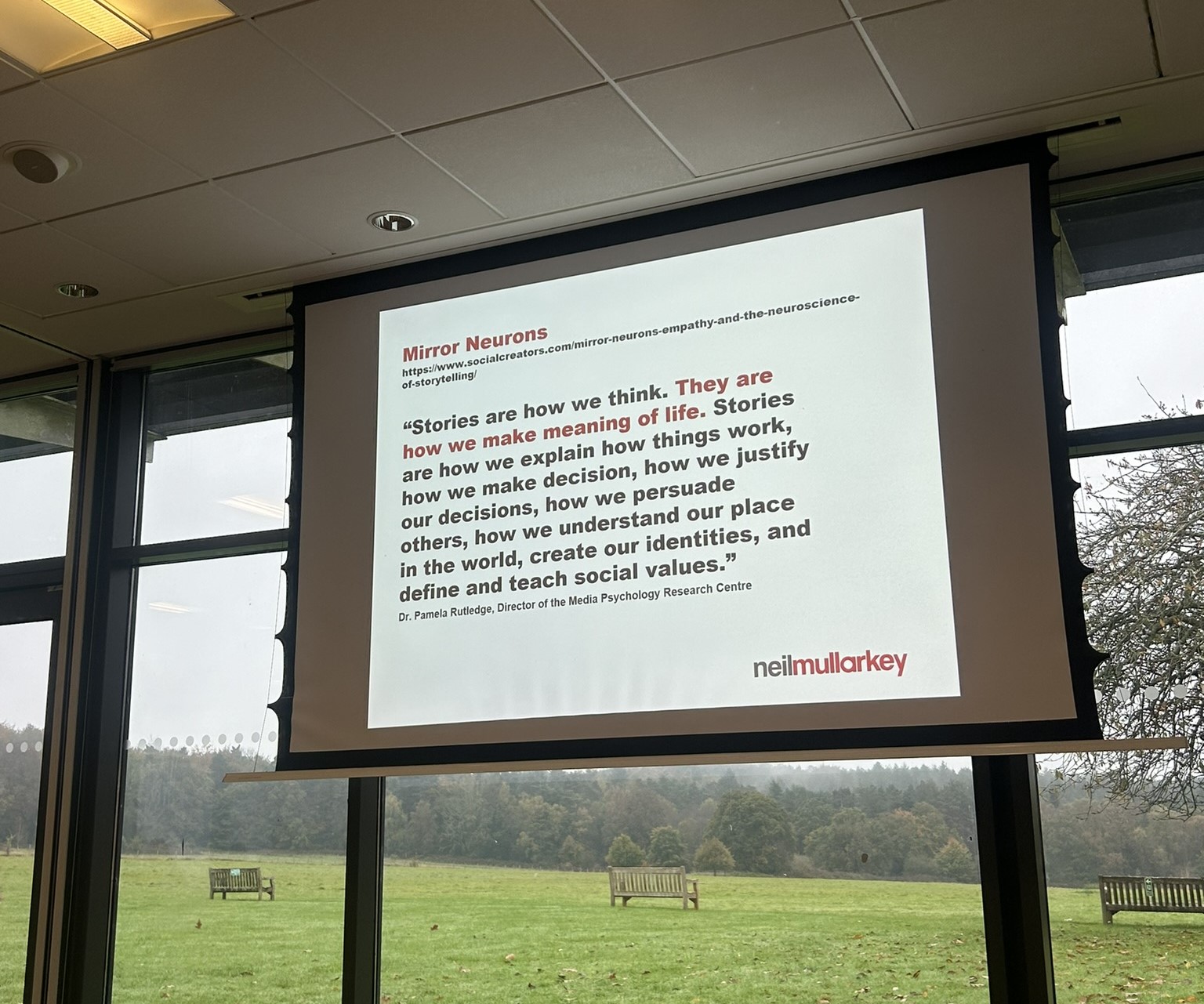
Sile Walsh – Inclusive Leadership Navigating Organisational Complexity
Our next speaker, Sile Walsh, took to the mic and began by coining a new term to introduce herself – ‘pracademic’. She explained how this meant she practices what she does supported by academic rigour. A term in which some of the guests said they might borrow for themselves.
Sile dived straight in, tackling the assumptions that surround inclusive leadership. A number of fascinating points followed, for example, how it is more sustainable to be compassionate than to be empathetic, how practicing inclusivity and inclusive leadership can help tackle many business issues and that people’s identity doesn’t make them more inclusive, it only replicates in-group dynamics.
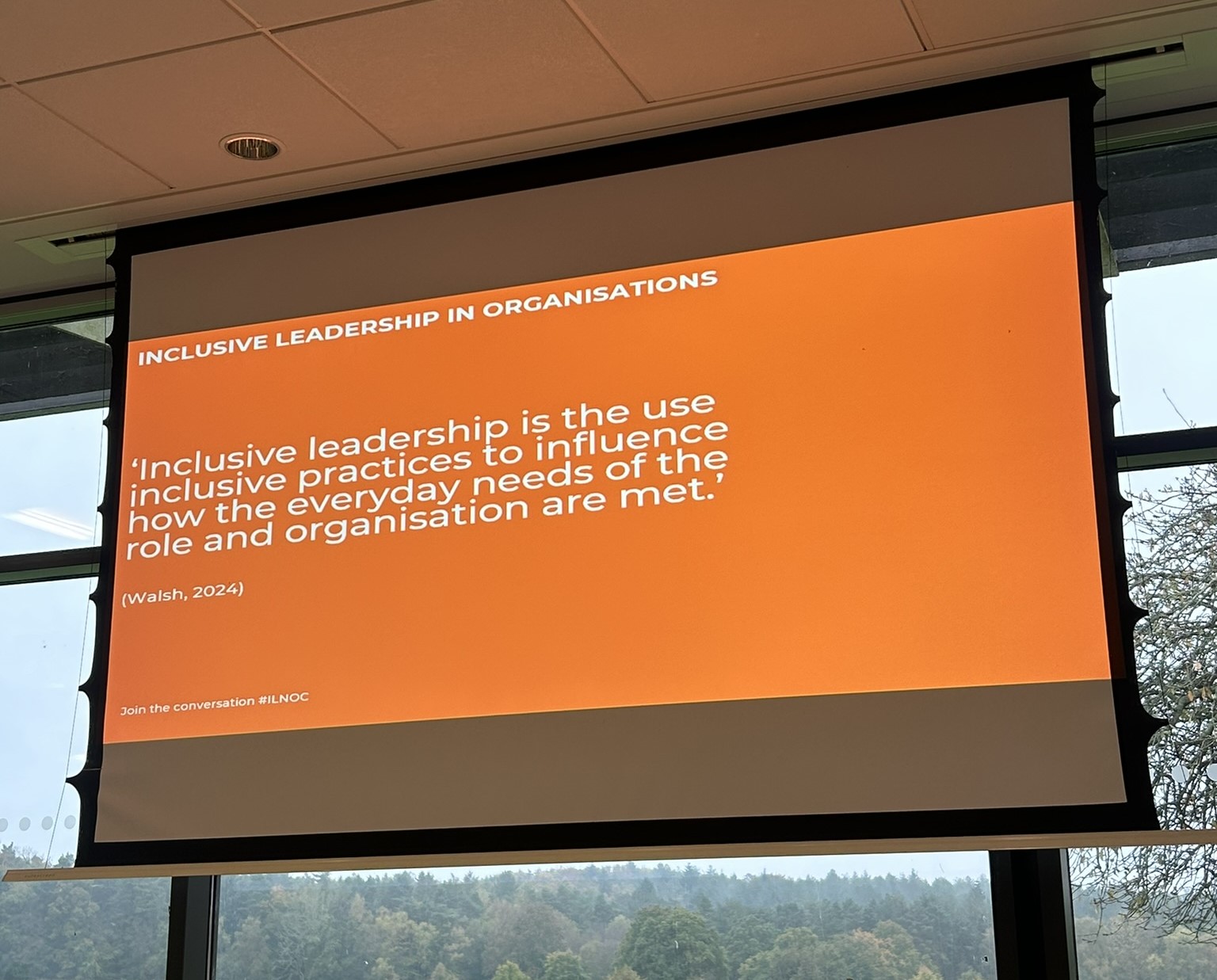
Sile finished this part of her talk with a relevant anecdote about her father, how when he was young, he was taught certain rules about what is right and what is wrong but as time passed, what was acceptable then is not so now, and therefore the rules have changed. The issue here, Sile addressed, is again that having rules, rather than a process, is counterproductive – there is no right or wrong and inclusion can never be that clear cut. As a process, it is always changing and rules create fear and panic rather than teaching those to understand, compassionately.
Sile’s talk ended with a few minutes of sporadic Q&A; the guests were so inquisitive about Sile’s expert topic that they wanted to learn more.
Emma Du Parcq – Local vs global approaches: What you can learn from other organisations’ struggles
Roffey Park Institute’s very own Head of Consulting, Emma Du Parcq, had the pleasure of being the final speaker. Emma began by explaining her thought process behind her talk focus – what would she, herself find interesting? How can she make the final session fun? Taking this into consideration, she decided to talk about what didn’t go right, her own mistakes and collaborative mistakes.
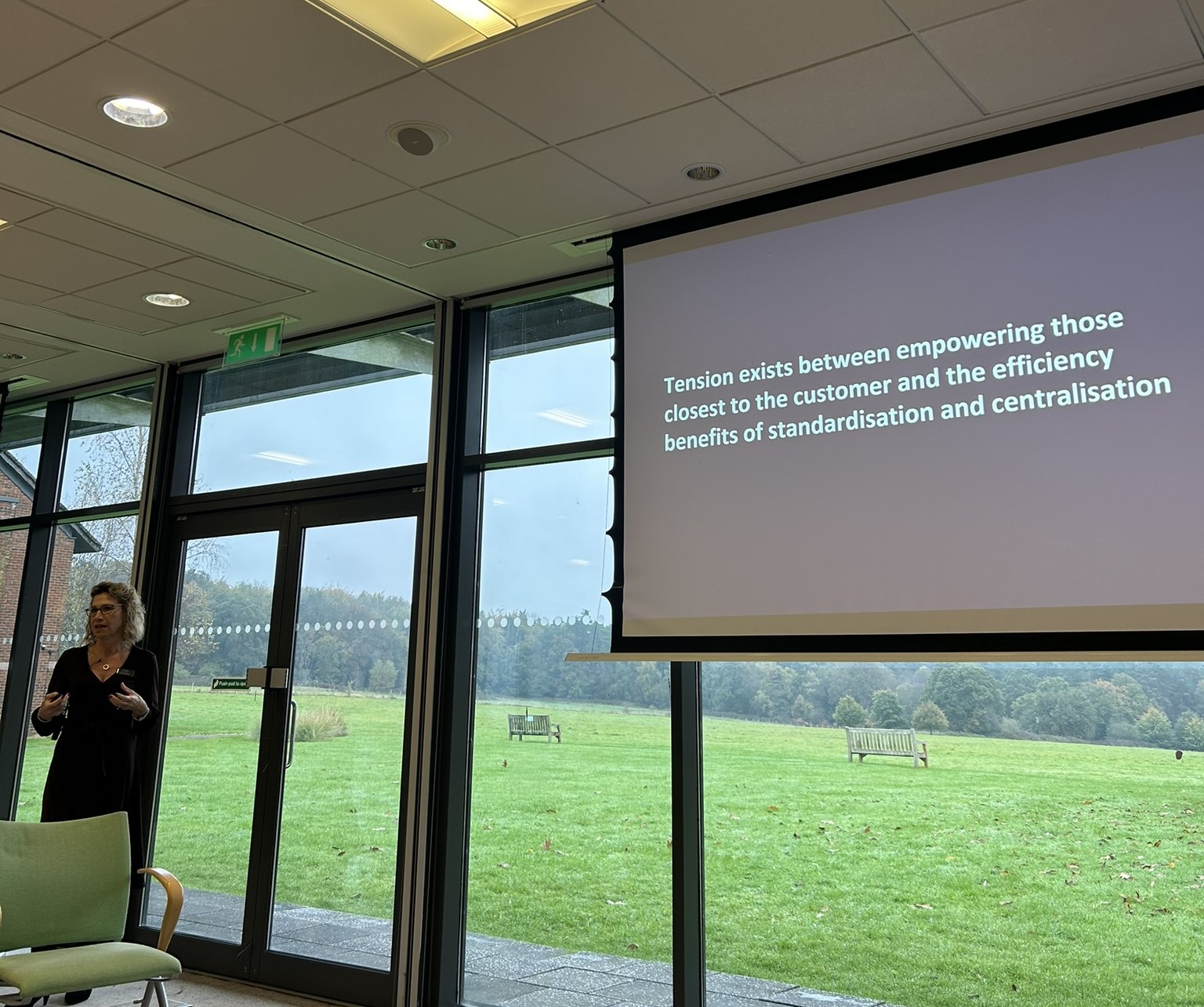
Emma was right. She presented five real-life projects of challenges and blockers that organisations have had, some resolved and some not, followed by multiple choice answers of what the guests thought was the best response to these challenges. The audience engaged well with this, with outbreaks of laughter and light-hearted responses throughout, matching Emma’s emitting positivity and vibrancy.
After lunch, the conference ended with an open-space group activity for all guests, facilitated by Emma and Ciara Halloran. This started with three whiteboards placed around the room with three pre-written questions written on them. With one nominated scribe per station, the guests flowed freely between stations all engaging and contributing their inputs to answering the questions.
Emma closed the conference well and it was clear to see how the dynamics of the audience had changed from start to finish – from first meeting and getting to know one another to co-creating some brilliant answers to the questions as a team.
Final reflections
Before the guests left and the conference wrapped up, Arlene gave her thanks to the guests, workshop facilitators, keynote speakers and the Roffey Park team that made the conference possible. But perhaps the star of the show was the wonderfully imaginative Fiona Macpherson of Inky Thinking who from minute one to way after the guests had left, had listened to and captured the key messages and portrayed them free hand on a long reel of paper.
The success of this year’s conference is undeniable. The conversations were at the forefront of innovation and the guests were enthusiastic to see how the future of OD will play out, locally and globally, with themselves as OD practitioners at the heart of it.
